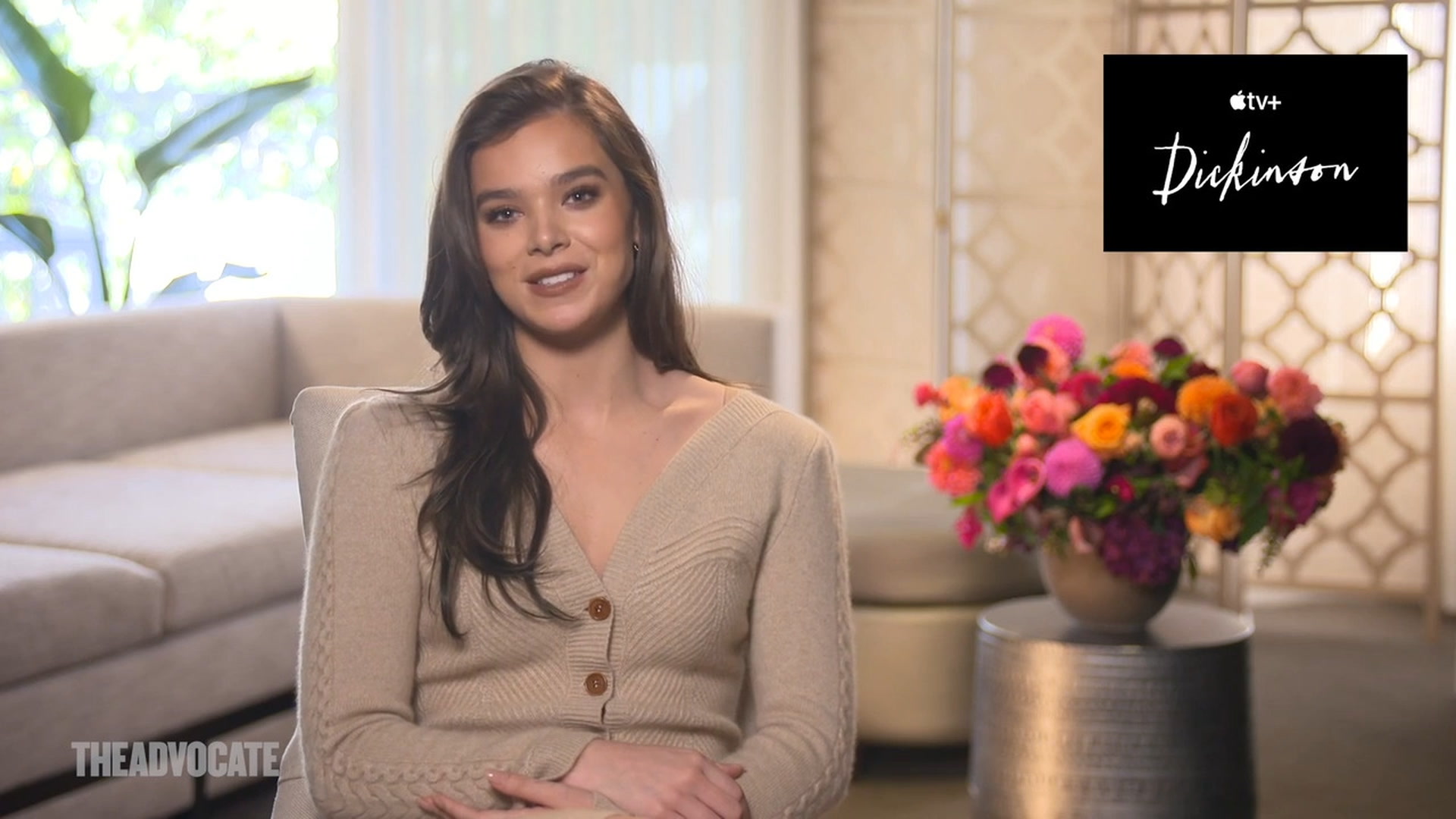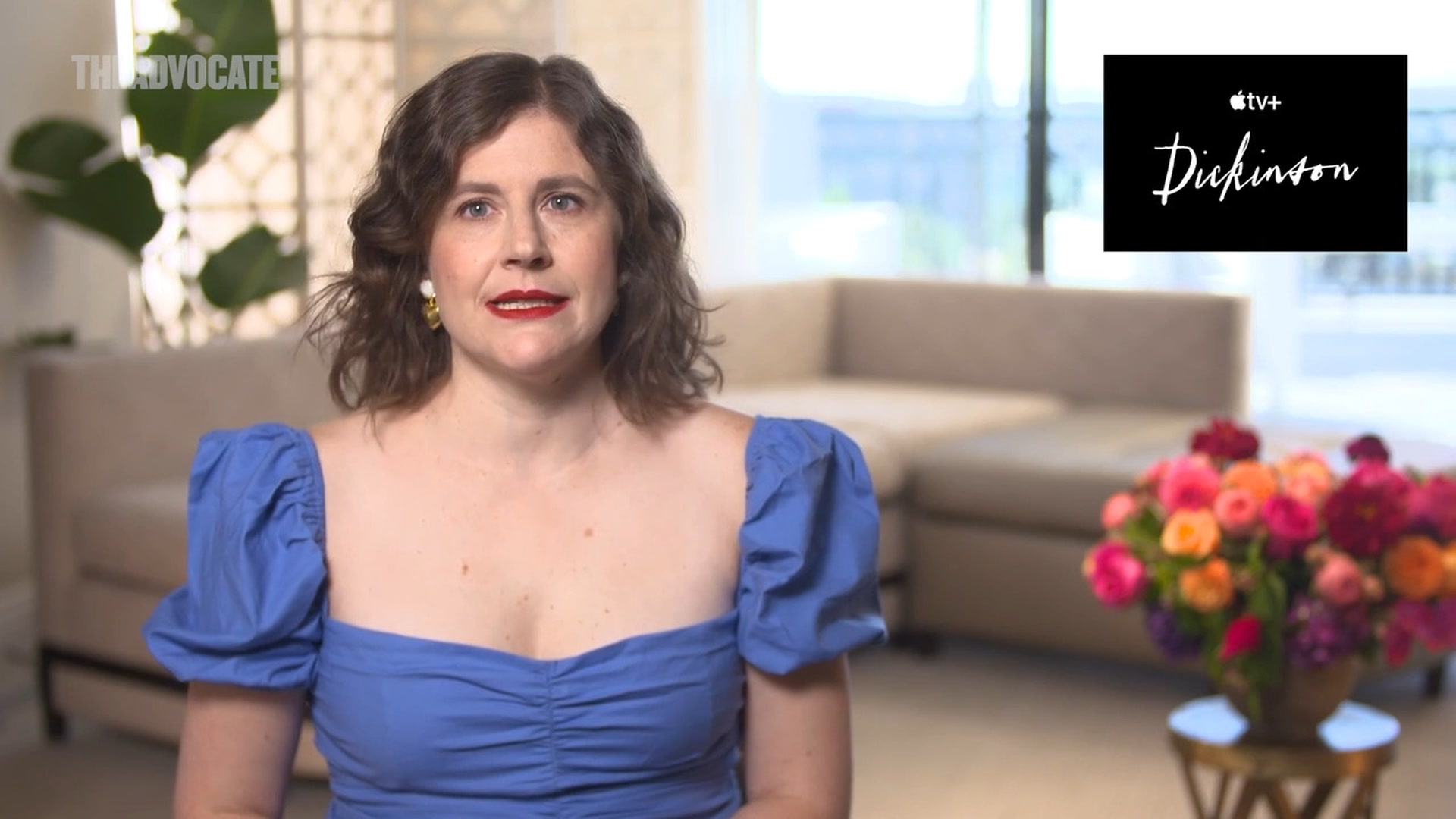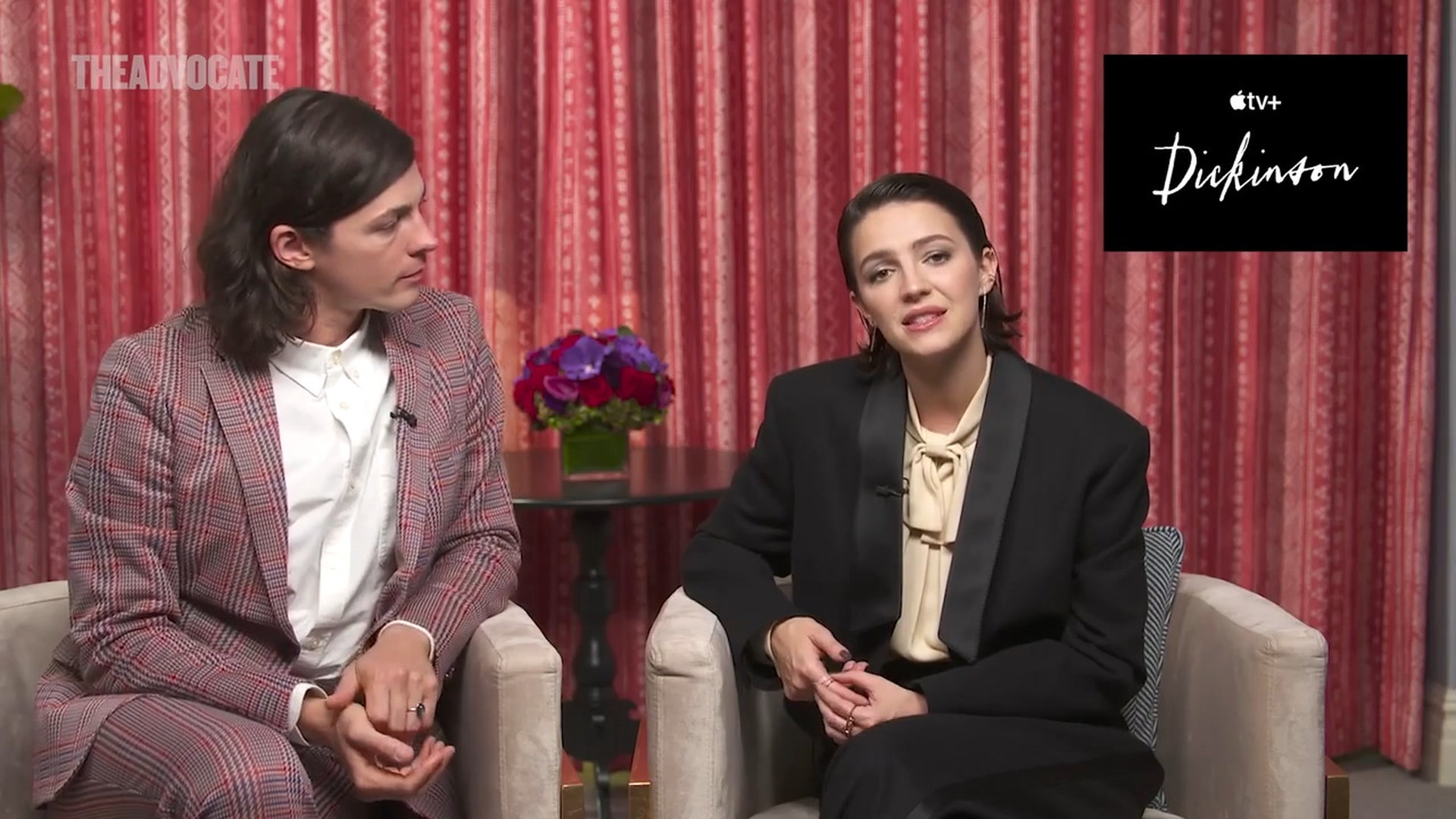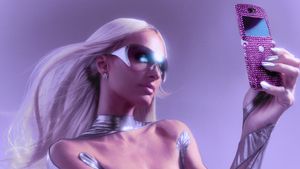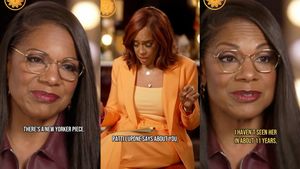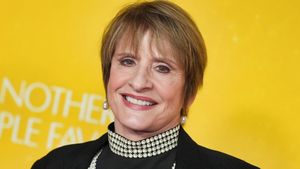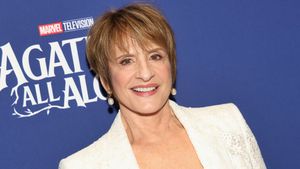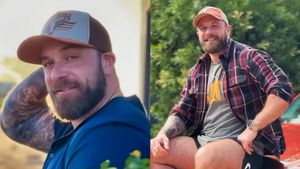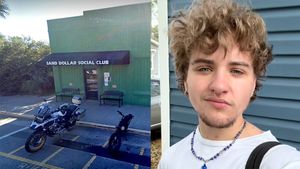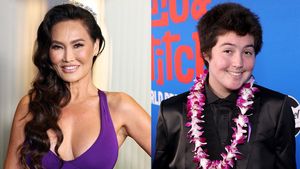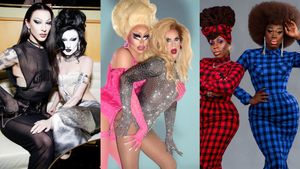A postmodern achievement with intellect, heart, and humor, Dickinson's third and final season is a perfect arc of storytelling that is a gift to queer viewers. Since the series that stars Hailee Steinfeld as the great poet of Amherst, Mass., premiered in November 2019, it has leaned into Emily Dickinson's great passions --writing, family, and her one true love, her eventual sister-in-law Sue (Ella Hunt). When the series ends later this season with the satisfying conclusion creator Alena Smith always intended, the queer love story at the center of Dickinson will go down as one of TV's most enduring romances.
"I just think Emily and Sue is a great love story," Smith tells The Advocate.
"I feel very lucky to have played through such a beautiful relationship on screen, one that I've never played through before and have just really never experienced," Steinfeld tells the Advocate. "The process of creating what this relationship looks like and felt like or what it might have felt like was one of my favorite parts of the whole process -- and collaborating with Ella Hunt...and Alena Smith...who wrote this beautiful love story between these two young women who couldn't be themselves, really, with anybody but each other."
The pilot began with an unabashed make-out session between Emily and Sue in an orchard and ended last season with a beautiful recommitment to their psychic and corporeal connection -- with queer identity always at its core. In the fantastical episode that dropped this week on Apple TV+, Emily goes deep into her copy of Walt Whitman's Leaves of Grass and fantasizes that she's with him at a Civil War military hospital in New York City. Later, Billy Eichner's Walt takes her to her first gay bar -- Pfaff's, a beer cellar and queer enclave the real Whitman frequented. It's there under Walt's encouragement that she first resoundingly proclaims her love for Sue.

Billy Eichner and Hailee Steinfeld
In an upcoming episode, a fantasy sequence offers Emily and her sister Lavinia (Anna Baryshnikov) a chance meeting with Sylvia Plath (it all makes perfect sense in the Dickinson universe). Each episode of the series is named for one of Dickinson's poems, and in the episode named for the poem, "The Future never spoke," Emily's past, present, and future collide. In it, a second opportunity arises for Emily to name her deep love for Sue with cognizance and openness that didn't exist for a queer person in the 19th century. Through Smith's artful storytelling that has always included dream-like sequences and intermittent modern language and music, she hands back a narrative to Emily and to queer people who were denied the ability to speak their stories into existence in Dickinson's day.
"I'm so excited for the audience to get to see season 3, which I think really is the biggest, boldest, most relevant, and resonant season of Dickinson that there's been. It takes us to the culmination of Emily's development as the great poet that she becomes," Smith says about the season that unfolds against the backdrop of the Civil War.
"One of the journeys that Emily is on and that season 3 is all about is a need to step up and own her queerness," Smith says. "In previous seasons, we were resting on the idea, which felt new and interesting to us at the time that in the 1850s they didn't really have the same words and categories that we have for sexuality -- that Emily could live in that sort of undefined space of fluidity and not have the words to say what she and Sue meant to each other or the feelings that she had about herself."
"But having come all this way, we felt that it was so important for Emily to actually be asked to define her identity a little bit more and to say, 'I love Sue, I am queer.'"
Minor spoilers ahead.
One scene in which Emily speaks her truth occurs with her beloved sister Lavinia (who comes into her own identity this season as a proto-feminist and performance artist).
"The moment of Emily revealing her love for Sue, I really loved how it was written because it felt like it skirted some of the more typical coming-out moments," Baryshnikov says. "There wasn't shock or shame -- it was almost as though it was something that was kind of intrinsic. We understood that part of their relationship [Emily and Lavinia's], that kind of easy understanding and coexistence. I was just so excited to get to glimpse into the future."
Like all great love stories, Emily and Sue have endured challenges, including stints of barely speaking, Emily's inability to fully commit beyond the intellectual (she sends Sue several of her poems, and Sue is her confidante), and, of course, that little hurdle of Sue's marriage to Emily's brother Austin (Adrian Blake Enscoe). For Hunt, who came out as queer earlier this year, playing Sue has personally inspired her.
"This TV show has provided as a safe environment for me to discover who I am and to feel safe trying on different versions of myself and supported with that journey and allowed to feel like it is a journey and that I don't have to have all of the answers," Hunt says. "I have felt accompanied by my character Sue because she is asking similar questions of herself. She is repressing parts of herself, and it's felt so good this season with where I am in my personal life. I'm at a place where I feel in full bloom, and I feel open about who I am. And I'm still trying on different versions of myself, I'm still working out. I'm still on that journey."
A former child star who embodies the towering figure of Emily with keen insight and buoyancy, Steinfeld hopes her portrayal may become a beacon for those who need these stories.
"I remember reading the first two episodes of the 1st season and just instantly feeling like this show is so fresh and so different. It's so clear that it's about not conforming to any certain societal standard or behavior, no matter what time we're living in. It's about being seen and understood," Steinfeld says. "It's about being or at least getting to a point where you feel you can be yourself unapologetically and own that. I am so fortunate and I feel honored to have been given this opportunity to play a character that I only hope people can watch and somehow see themselves reflected in it."
Watch full interviews with Smith and the cast below:
Hailee Steinfeld and Anna Baryshnikov
Baryshnikov on what the series means to her:
"I'm so proud to be a part of a show that has connected me with not only this incredible human and her work, but fans all over the world who we have had the incredible opportunity of hearing from or meeting and seeing how it's affected them. You can only hope when you set out to do something that you really love and feel super passionate about that it has somewhat of the same effect on somebody else."
Steinfeld on Emily and Lavinia's bond:
"To see this relationship between Emily and Lavinia that has gone so many different ways in the past, we really get to see this relationship for what it is and what it becomes later in their life. To have this moment between Emily and Lavinia is so special and so vulnerable, and the fact that there is this sense of love and appreciation that Lavinia has for Emily in this moment, there's no judgment. There's this pure bond that they have, and it's really beautiful."
Alena Smith
Smith on the great love story at the center of the series and where it leaves their relationship:
"One of the things that's going on with Emily and Sue this season is that Sue is asking Emily to come into her body. And she's saying, 'Yes, I love your poems. We all love your poems. But I really want all of you and not just the words on the page.'"
"For all intents and purposes, this [upcoming episode of intimacy] is where the show leaves Emily and Sue. I wanted to leave them in what feels to me almost like a holy kind of space. It's like a sacred moment between the two of them."
Ella Hunt and Adrian Blake Enscoe
Adrian Blake Enscoe on Austin upending toxic masculinity:
"Being a straight white guy in 21st century America is to have the responsibility for dismantling the patriarchy and white supremacy and all of these other awful things that we've been saddled with from the past. I have so much respect for the character of Austin in this season. Although he doesn't do it very neatly, he is trying to step forward. At some moments, he's definitely doing that by trying to burn the house down."
Hunt on Sue's sexual and emotional agency:
"Sue is in this place of acceptance and love. She's messier than we've ever seen her, she's happier than she's ever been, and she's asking for what she wants. Full stop as a woman, any woman regardless of sexuality or identity, it's hard to ask for what we want. There are so many factors in the world that make us feel like we should repress our desire."



